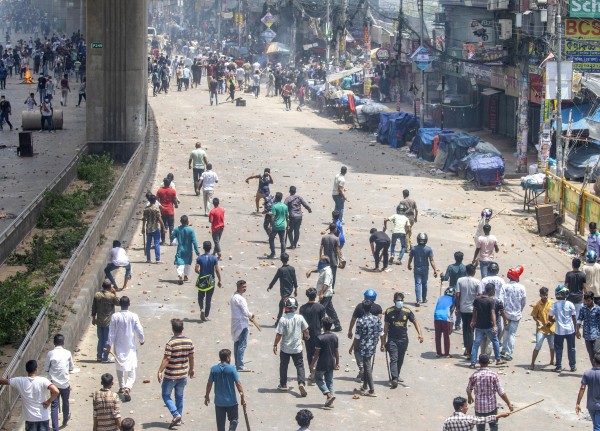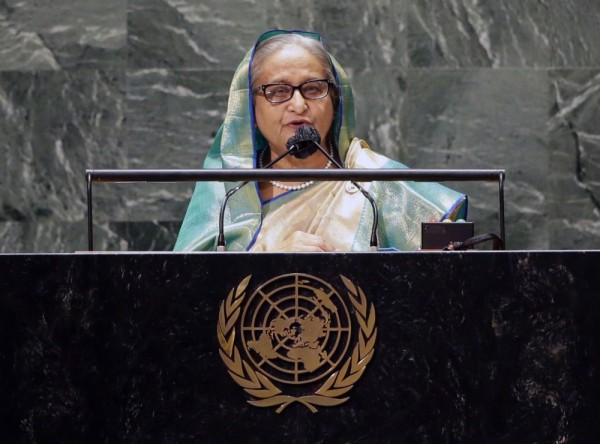The Dhaka office of Bangladesh’s Amar Desh newspaper was stormed by police on Wednesday, just hours after Dhaka’s deputy commissioner, Muhibul Haque, ordered its publishing license suspended. Police also arrested acting editor Mahmudur Rahman on fraud charges, according to local and international news reports.
The move comes only a month after the Bangladeshi government banned the pro-opposition private television network, Channel 1, citing irregularities.
The newspaper’s deputy editor, Syed Abdal Ahmed, said that Mahmudur was taken away just before 4:00 am local time, shortly after police forced their way into the newspaper’s office, breaking through a human barricade of newspaper staff.
Police had tried to arrest Mahmudur earlier but were held off by staff members, who had blocked the main entrance of the building before midnight, saying that the acting editor would only be arrested “over their dead bodies.”
Government sources were reported as saying that the complaint against Mahmudur was lodged by the newspaper’s former publisher: However, local news outlets reported that the publisher was forced to file the complaint.
Some Bangladesh media reported that the publisher was detained by representatives of the National Security Intelligence (NSI) for about six hours on Tuesday. He was forced to sign two papers, stating that he was not the publisher of Amar Desh and that “legal steps can be taken as his name is being printed as the publisher,” the newspaper’s editor told Bangladesh online news portal, bdnews24.com.
Amar Desh is know for being close to the opposition Bangladesh National Party (BNP) and has often been critical of the current government.
According to Bangladeshi journalist S.M. Mayeenahmed, Mahmudur took over the management of the newspaper in 2008 and filed an application with the District Commissioner’s Office (DCO) to register the change in ownership, but was informed only this week that the application had not been approved.
We are concerned that the Bangladeshi government is using administrative sanctions to limit the newspaper’s ability to criticize its policies,” said IPI Director David Dadge. “I urge Prime Minister Sheik Hasina to live up to her promises and ensure that journalists are allowed to distribute information and opinions free of harassment or intimidation.”
During an IPI Press Freedom Mission to Bangladesh in December 2008, Sheik Hasina personally gave her commitment to press freedom to an IPI delegation visiting the country. Sheikh Hasina acknowledged that freedom of expression was necessary if journalists were to play a vital role in supporting democracy and secularism, and said that journalists in Bangladesh enjoyed full freedom of expression.
Following a 2009 follow-up mission IPI issued a statement saying: “Although President Zillur Rahman told IPI: ‘We must do justice, must punish the killers,’ and in every meeting with IPI, government representatives as well as officials from the Bangladesh Nationalist Party (BNP) expressed support for press freedom, this mission believes that such an apparent commitment can only be substantiated if the government translates its words into concrete actions.


